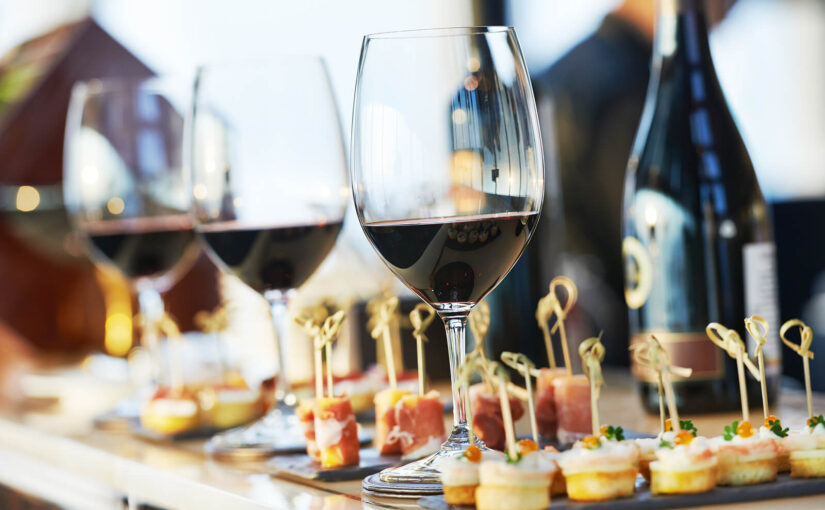Did you know you can prevent or recycle most pub and bar waste?
Waste reduction and recycling can significantly impact your profits. It can also boost your brand’s reputation and corporate social responsibility while reducing environmental impact.
Let’s explore tips for reducing and recycling waste in your hospitality business. These will ensure you’re serving customers, your pocket, and the planet.
Carry out a waste audit
A waste audit is crucial in effectively managing your establishment’s waste. You can perform the audit yourself or hire a waste management company. We offer a free, no-obligation waste audit to all businesses within our service area — contact us for more information. If you’re based elsewhere, it’s easy to contact a few local companies to enquire.
The audit’s primary goal is to assess the types and amount of on-site waste. It should find the best ways to dispose of each type. Pubs and bars create a lot of waste. This includes glass, paper, and cardboard. They also produce plastic bottles, food waste, aluminium cans, bottle tops, and general waste. There’s wastage from draught drinks, too.
Your waste audit will identify areas that need attention. It will help you update or create a waste and recycling policy. You can then make changes and train your team on the new processes. This will improve waste management and make operations more sustainable.
Develop a waste and recycling policy
Use your waste audit to pinpoint areas for improvement and create a policy document to maintain your changes. First, focus on reducing general waste and then identify methods to decrease recyclables. Aim for zero waste, and you won’t go wrong.
Sustainable products may cost more, but you’ll save money on waste collection fees, so the cost evens out. Remember that recyclables cost less to dispose of than non-recyclables.
Changes could include choosing a new crisp brand with recyclable packaging or changing your cooking methods to stop using cling film. You could also consider sourcing supplies from a vendor that uses reusable crates for deliveries instead of cardboard boxes. Small changes can make a significant impact.
These changes may take time to research and implement — weeks or months. But, your recycling policy and training will ensure that the team follows the new processes once they’re in place.
Educate your staff

Schedule a meeting with your staff to discuss your new waste and recycling policy. Emphasise the importance of these changes for your business and the environment.
Training on waste sometimes gets sidelined due to busy schedules. It’s also often overlooked when new employees join the team, but it’s vital for your waste reduction strategy. Alongside initial waste training, run regular sessions on specific aspects. This training should focus on reducing waste in crucial areas. These might include pulling the perfect pint, cellar management, stock rotation, and waste tracking. Improving knowledge across the team will boost stock control and reduce waste.
Commit to creating new training modules as new waste problems and solutions arise.
Engage customers in your waste reduction efforts
Motivating your customers to join your waste and recycling efforts can be very helpful. You’ll also be surprised at how passionate some will be.
Consider strategically placing informative signs on the back of toilet doors, behind the bar, and in your menus.
Encourage patrons to order only what they’ll eat. Promote soft and tap drinks over bottled, canned, or carton drinks. You could run special offers on these items to provide an added incentive.
Many pubs and bars now use paper straws instead of plastic ones. To cut waste, consider eliminating straws or buying reusable ones.
If customers leave food on their plates, offer to box it up for them to take home. This prevents food waste and helps keep your commercial waste bill in check.
Source new suppliers and maximise recycling
Stock is typically delivered in easily recyclable cardboard boxes. Given the volume of these boxes, recycling should be a top priority. To recycle, score and remove tape with scissors or a box opener tool. Then, collapse each box and place it in your mixed recycling bin.
Even better, invest time in finding suppliers who prioritise sustainable practices. Look for those that use recyclable packaging and offer deliveries in reusable crates. This change would reduce waste and reinforce your commitment to the business’s sustainability.
If your waste provider doesn’t prioritise recycling, consider switching to one that does. Pubs and bars should have several recycling bins — one for glass and another for mixed recycling (paper, cardboard, plastic, and aluminium). A dedicated food waste bin is also essential if your business serves food.
Lastly, it would help if you had a waste bin for non-recyclables, but aim to use it as little as possible. This setup will simplify recycling and could save you money.
Our case studies show how we’ve helped many local businesses recycle more and pay less.
Make changes in the kitchen
When your audit flags the kitchen as a key area for waste production, you can reduce this waste by improving food storage. Store cooked and prepared food in airtight containers. Label them with dates and arrange them for visibility. Otherwise, your staff may miss them, and they’ll become food waste.
If your menu consists of only large meals, consider offering smaller portions as an option. Catering to customers with lighter appetites will reduce food waste as they’re more likely to finish their meals.
All food wasted in the kitchen and left on plates needs to be recycled in a food waste bin.
